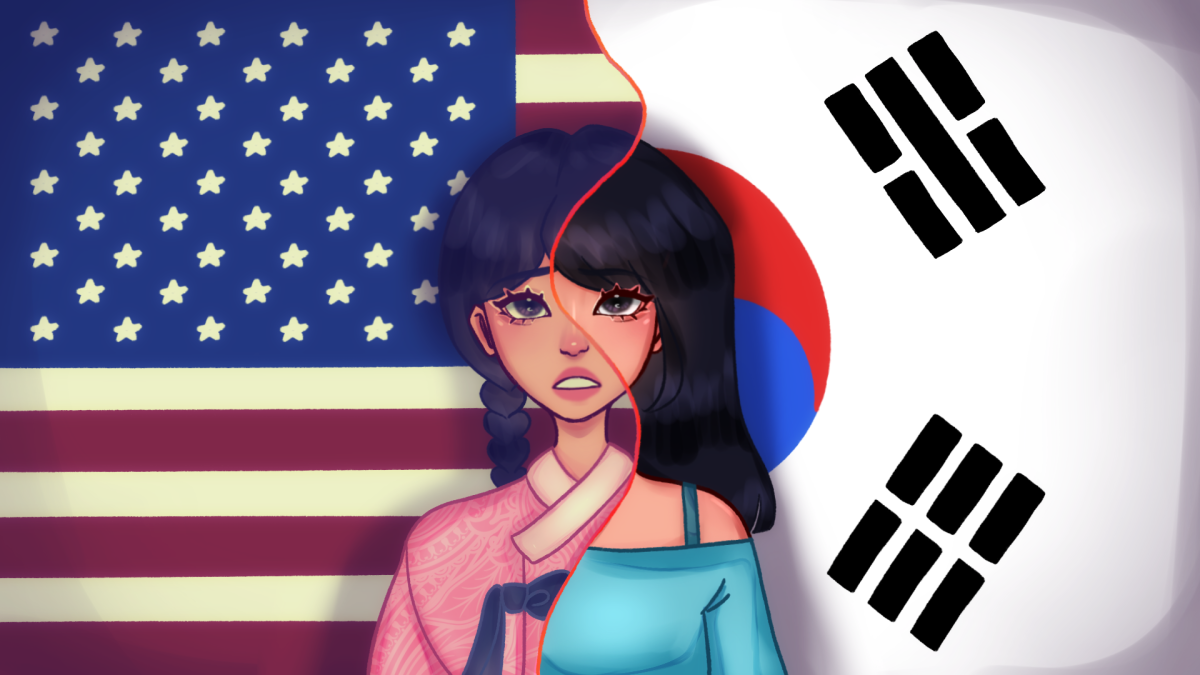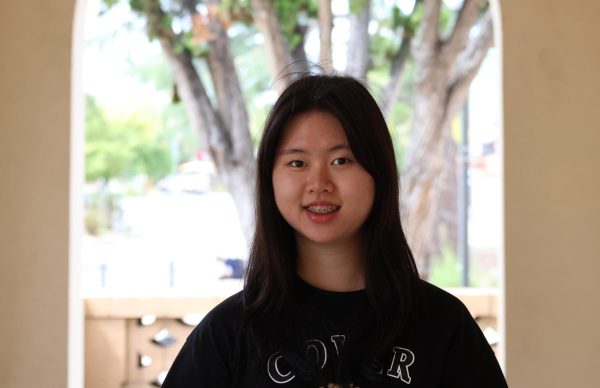Amid the vibrant ambiance of the zoo, the sun’s warmth envelops me like a giant blanket as I grasp tightly onto my parents’ hands, surrounded by a bustling crowd. Laughter and bright chatter tickle my ears, mingling with the enticing aroma of pizza and hotdogs.
But soon enough, I lose sight of my parents whose hands I was grabbing just seconds ago. I’m in a foreign setting, surrounded by a sea of unfamiliar sights and strangers. That disorienting feeling of being disconnected, like not belonging, mirrors what many people experience in their own countries due to culture shock.
This experience often remains unacknowledged, especially among American children of immigrant parents or those who were born in a different country but moved to the States at a young age.
For instance, I was born in South Korea. I spent my first seven years there, and I try to go back to visit at least every two years. My family speaks Korean, eats traditional Korean food and follows many Korean customs. Yet, I only recently realized how the sensation of being an outsider in Korea gives me culture shock.
Language is the cornerstone of any culture as it serves a vital link between us and our roots and communities. However, maintaining proficiency in the mother tongue can be challenging, particularly when the language isn’t taught at school. Paly doesn’t offer Korean language classes, so I had to actively seek an off-campus course to both continue learning my language and to ensure it counted towards my graduation requirement.
A considerable number of children of immigrant parents gradually lose their ability to speak their parent’s native language at a young age. The demands of school and life make it easy to put foreign language skills on the back-burner when they aren’t a daily necessity. Moreover, depending on the extent of the language barrier, it can strain relationships between immigrant parents and their children if either party cannot effectively communicate their thoughts and feelings.
Food, an integral part of culture, adds another layer to this multifaceted experience. While it can be fun to explore new cuisines, experimenting with food can deepen the sense of dissociation when we realize that we don’t feel a sense of normalcy eating the local or traditional dishes like other natives do.
Though my family primarily eats traditional Korean food, there have been subtle recipe modifications over the years, influenced more and more by our evolving life in America. The ingredients and foods we buy from Korean markets or restaurants aren’t expected to be 100% authentic due to complications including shipping constraints. Additionally, Korean businesses are often pressured to assimilate by Americanizing their products in order to attract a wider audience.
Culture is a living, breathing facet of society that is constantly shifting and transforming. For people living outside their home country, this continual change can create a sense of otherness. We encounter different values, expectations and social norms –– some of which may surprise us in both positive and negative ways. Even the simple act of greeting someone or expressing ourselves can vary significantly from what we’re accustomed to in our everyday life.
In Korean culture, there is a huge emphasis on respecting your elders — it is expected that you bend at the waist and greet them politely every time you see them. This way of greeting can sometimes be burdensome, especially as I spend more time in America and immerse myself in a non-Korean way of life.
While Korea, like many other East Asian countries, emphasizes a family-oriented lifestyle, American culture often emphasizes putting personal interests and individual passions before family. Although there’s nothing inherently wrong with either of these mindsets, it can be hard to merge them.
These factors create a gap between home country and identity. As children of immigrants, we often find ourselves straddling a line between being American and aligning ourselves to our heritage. At times, we may feel like observers rather than active participants in our own communities.
Here’s the thing –– culture shock in our own country is a reality people often underestimate, and we might begin to feel ashamed for it. Rather than feeling “white-washed,” we should channel this energy into leaning into our cultural heritage and engaging with our family about their experiences. By actively seeking ways to bridge the gap between both halves of our identity, we can reclaim a part of ourselves that always had a blurry line between them.


